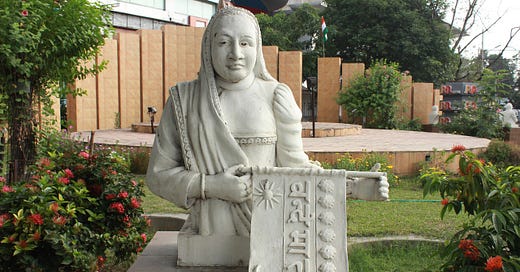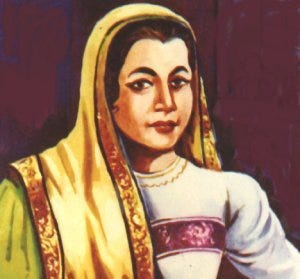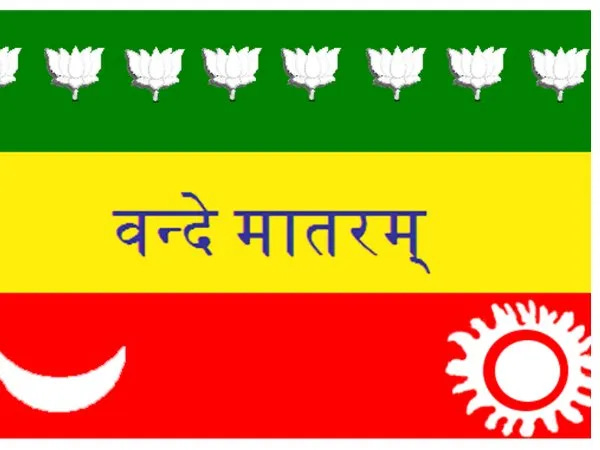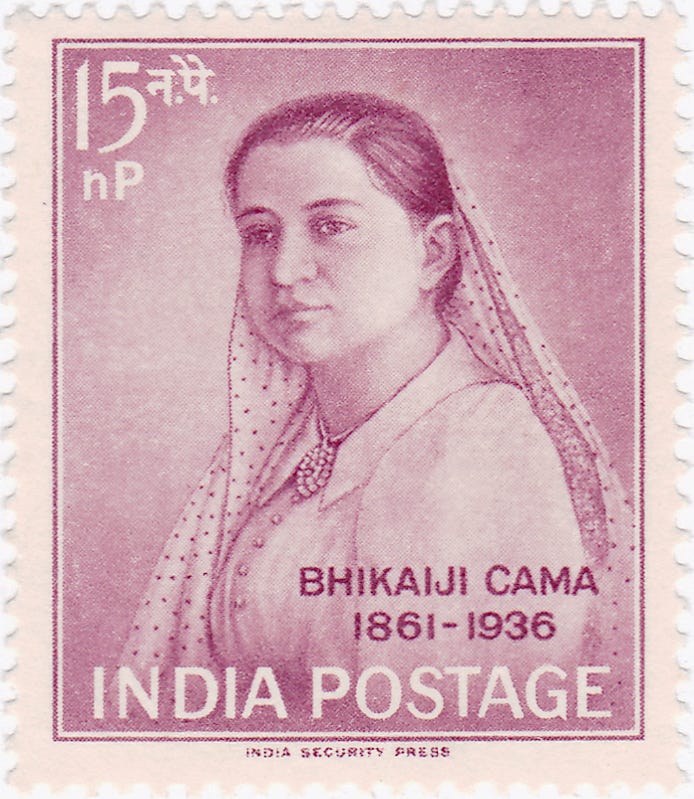Bhikaiji Cama: Commemorating the Revolutionary Patriot on Her Birth Anniversary
The Fearless Freedom Fighter Who Pioneered India's Struggle for Independence.
Commemorating Bhikaiji Cama
On the occasion of Bhikaiji Cama's birth anniversary, we pause to honour one of India’s most remarkable freedom fighters, whose contributions to the independence movement continue to inspire generations. Born on September 24, 1861, in Bombay (now Mumbai), Bhikaiji Cama was not only a fearless revolutionary but also a staunch advocate for women's rights. Her life's journey reflects an unyielding dedication to India's independence, and her legacy resonates as a beacon of courage and patriotism.
Early Life: Foundation of a Patriot
Bhikaiji Rustom Cama was born into a well-to-do Parsi Zoroastrian family. Her parents, Sorabji Framji Patel and Jaijibai Sorabji Patel, were influential members of the Parsi community in Bombay. Educated at the prestigious Alexandra Girls' English Institution, Bhikaiji displayed early brilliance, excelling in languages and demonstrating a strong sense of duty. From the very beginning, she was influenced by the reformist environment around her, which nurtured her ideals of service and justice.
Though her early years were comfortable, they laid the groundwork for her future path as a revolutionary. This sense of purpose deepened after her marriage in 1885 to Rustom Cama, a wealthy lawyer who supported the British regime. However, their differing political ideologies strained the marriage. Bhikaiji, rather than being confined by domestic life, chose to immerse herself in philanthropic work, leading her to more radical causes as she grew deeply disillusioned with colonial rule.
Political Awakening: A Voice for India's Independence
Bhikaiji Cama's political journey began in earnest when she moved to London. The imperial capital became a hub of revolutionary activity, and it was here that she met notable Indian nationalists like Dadabhai Naoroji and Shyamji Krishna Varma. These interactions ignited her passion for India's independence. She played an integral role in founding the Indian Home Rule Society in London in 1905, a platform dedicated to securing India’s autonomy.
Later, Cama moved to Paris, where she co-founded the Paris Indian Society. From here, she orchestrated much of her revolutionary activity, collaborating with other Indian patriots and publishing incendiary materials advocating for freedom. Her work as a publisher and distributor of revolutionary literature like Bande Mataram and Madan's Talwar was crucial in spreading nationalist ideals across Europe. These publications kept the spirit of resistance alive among Indians, both in the homeland and abroad.
In addition to her political contributions, Cama was a passionate advocate for women's rights. She recognized that the fight for national independence had to go hand-in-hand with social justice, especially gender equality. Throughout her life, she campaigned for greater political and social roles for women, setting a precedent for future generations of female leaders.
The Flag That Embodied the Struggle: A Defining Moment
Bhikaiji Cama is perhaps most famously remembered for the bold and historic act that inscribed her name in the annals of India’s independence movement: the unfurling of an early version of the Indian national flag. On August 22, 1907, at the International Socialist Conference in Stuttgart, Germany, Cama proudly raised the tricolour flag she had co-designed, a powerful symbol of India’s fight for self-rule. This daring gesture, made on foreign soil, not only defied British rule but also brought global attention to India’s cause. In that defining moment, she declared, “This flag is of Indian Independence! Behold, it is born! It has been made sacred by the blood of young Indians who sacrificed their lives. I call upon you, gentlemen, to rise and salute this flag of Indian Independence. In the name of this flag, I appeal to lovers of freedom all over the world to support this flag.”
The flag, which Cama designed in collaboration with Vinayak Damodar Savarkar, bore green, saffron, and red stripes—symbolising the unity of Hindus, Muslims, and other communities in India—with Vande Mataram inscribed in the centre. Her call for freedom resonated far beyond the borders of India, placing the country’s struggle for independence firmly on the global stage.
The Lasting Legacy of a Revolutionary
Cama’s exile in Europe lasted several decades, during which she continued to rally support for India’s cause. Despite facing personal hardships and isolation, she remained unshaken in her commitment to India’s independence. It was only in 1935, suffering from ill health, that she returned to India after years of exile. Bhikaiji Cama passed away on August 13, 1936, leaving behind a towering legacy of resilience, courage, and uncompromising dedication to justice.
Her life is immortalized in numerous ways. The Indian government honoured her with a commemorative stamp in 1962, and places such as Bhikaji Cama Place in New Delhi stand as permanent tributes to her memory. Additionally, the flag she unfurled in Stuttgart now rests in the Maratha and Kesari Library in Pune, a testament to her role in the freedom movement. Moreover, her significant financial contributions to institutions like the Avabai Petit Orphanage reflect her deep sense of social responsibility.
A Tribute to Bhikaiji Cama: The Mother of Indian Revolution
As we reflect on the life of Bhikaiji Cama on her birth anniversary, it is impossible not to be moved by the sheer determination she embodied. She was a woman ahead of her time—an unwavering patriot, a trailblazer for gender equality, and a voice of resistance in a foreign land. Her sacrifices, made from the relative comforts of privilege, speak to her unflinching commitment to the nation and its people.
Bhikaiji Cama did not live to see the freedom for which she so relentlessly fought, but her spirit has been woven into the very fabric of India’s identity. Her actions continue to resonate with all those who believe in justice, equality, and the right to self-determination. The flag she raised became the symbol of India’s struggle, but her vision was much broader—it encompassed a future where women and men would stand equal in the fight for freedom.
As we honour her memory today, we remind ourselves that the fight for freedom is eternal, as is the need to carry forward her ideals of justice and equality. Bhikaiji Cama, the "Mother of Indian Revolution," remains a shining example of what it means to live a life in service of a higher cause. May her indomitable spirit continue to inspire us in the pursuit of a just and equitable world.








Beautiful piece of write up 👍 A befitting tribute to a wonderful woman and a revolutionary freedom fighter par excellence 🤩
….. justice, equality, and the right to self-determination, all these are well enshrined in our Constitution of Independent India which the respected lady could not witness. But even after about 90 years of her departure, we are still struggling to provide adequate support systems for women. However our words fly higher than heights reserved for women in West countries……